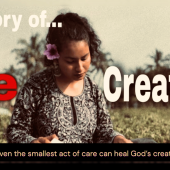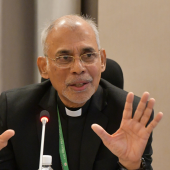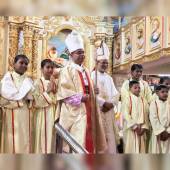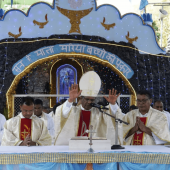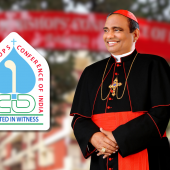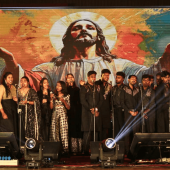Indian priest named the new national director of the Family Rosary Crusade Philippines
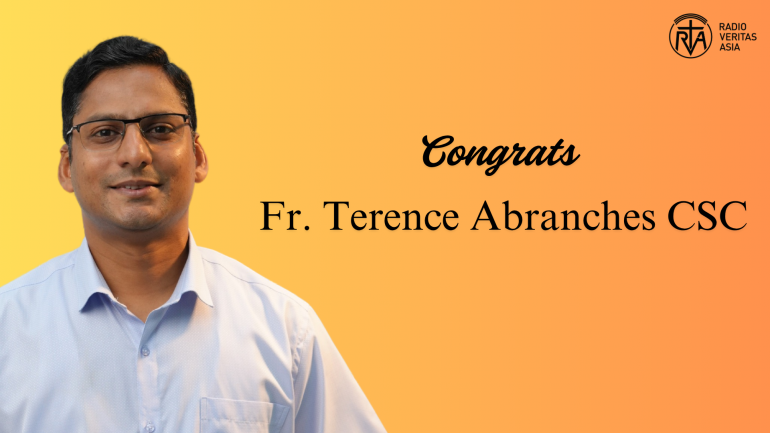
The Family Rosary Crusade Philippines appointed an Indian priest as its national director on June 3.
Fr. Terence Abranches belongs to the Congregation of Holy Cross, to the Province of South India.
Fr. Terence hails from the southwestern coast of India, Goa.
He answered God’s call after having completed high school and entered the seminary of the Congregation of Holy Cross.
After completing his philosophy and theology studies at the Jesuit-run Jnana-Deepa in Pune, India, he was ordained a priest in 2014.
He served in various capacities, beginning his ministry as the administrator and assistant parish priest of St. Louis School and St. Louis Church in Mumbai, western India.
He was the secretary to the Provincial Administration and later the formation director of the seminary for undergraduates.
He also served as the formation director of the integration program for candidates entering the religious order of Holy Cross.
Before he was appointed the executive director of the Family Rosary Crusade Philippines, he worked as a vocation facilitator in the Philippines.
Holy Cross Father Patrick Peyton, an American, founded the Family Rosary Crusade in Albany, New York, in 1947.
In the 1950s, Dominican priests invited Father Peyton to the Philippines to spread the Family Rosary Crusade, a multi-media-based ministry. It promotes the praying of the Rosary by families.
It also makes families resilient by grounding them in Christian values and infusing positive energy and inspiration.
Father Jimmy was the national director from 2016 to 2019. In 2019, Fr. Mathew became the mission director to this day. Fr. Wilson Thoppilan was Family Rosary Crusade's national director from 2019 to May 31, 2025. Father Terence replaced Fr. Wilson. They are all from India.
Radio Veritas Asia (RVA), a media platform of the Catholic Church, aims to share Christ. RVA started in 1969 as a continental Catholic radio station to serve Asian countries in their respective local language, thus earning the tag “the Voice of Asian Christianity.” Responding to the emerging context, RVA embraced media platforms to connect with the global Asian audience via its 21 language websites and various social media platforms.









